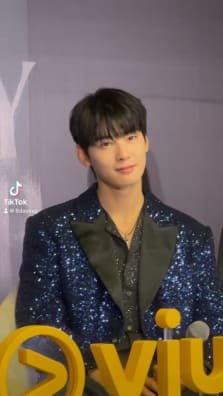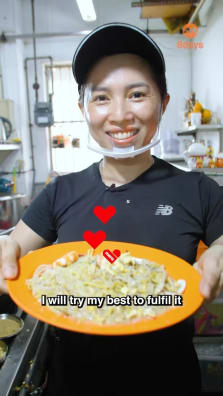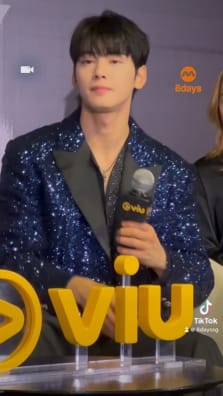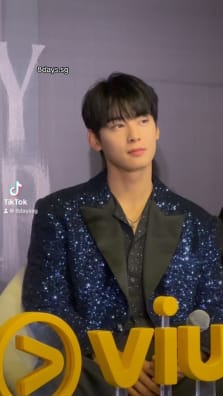Cosmos: Possible Worlds Host Neil deGrasse Tyson Has An Idea For A Restaurant On The Moon
Hollywood's go-to astrophysicist on why we must not give up hope no matter what is happening to the world.
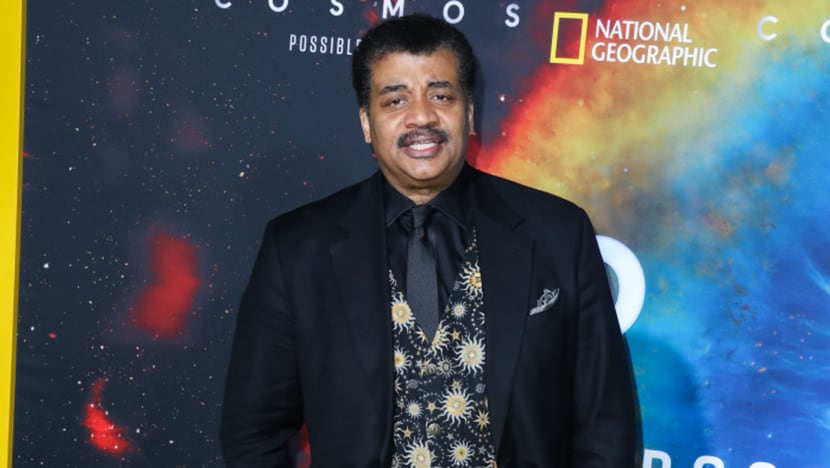
We live in interesting times and Cosmos: Possible Worlds, the follow-up to the Emmy-winning docu-series Cosmos: A Spacetime Odyssey, is just what we need right now: a welcome respite from the doom and gloom that whisks us off for a few hours to a distant planet. But that journey of a thousand light years begins here on Earth. This is where Neil deGrasse Tyson, Hollywood’s go-to astrophysicist with the incredibly sonorous baritone, comes in. Again the host and skipper of the Ship of Imagination, Tyson, 62, takes on this awe-inspiring voyage that not only examines humankind’s relationship with one another and other lifeforms but also its place in the vast universe. Speaking to 8days.sg over the phone from New York, Tyson tells us what the show hopes to achieve and about the day his services as a TV host are no longer required. (Don’t say that, Neil!)
8 DAYS: Cosmos: Possible Worlds arrives six years after Cosmos: A Spacetime Odyssey. Six years seems like an eternity…
NEIL deGRASSE TYSON: Well, first of all, that was quick. Because the first Cosmos came out in 1980, and then came Cosmos: A Spacetime Odyssey, 34 years later, in 2014. So that’s an improvement (chuckles) — six years compared to 34 years. Cosmos takes a huge effort to combine visual effects, animation, location shoots, and scripting. So for me, six years is considered fast. I’m impressed that people have expectations that we can just bang these out every year, but it’s just unrealistic given the magnitude of creative efforts that come together for this.
On the cosmic calendar, six years is barely a blip. There’s a lot of green-screen work especially when you’re onboard the Ship of Imagination. Did you find it easier to work with special effects this time around?
A lot of green screens and, of course, I am in the Ship of Imagination looking out at a 50-ft green screen wall. And it wasn’t as hard as I thought it might be. If the special effects supervisor says, “Look at here, a star just blew up.” I know what a star would look like when it blows up because I’m an astrophysicist, so I can react to an exploding star. But when the ship gets miniaturised and interacts with insects, he would say, “There’s a huge worm over here because we are little, now react to that!” I would ask him, “Do you have a visual reference for me?” (laughs) I need some help here.” So when there are visuals outside my area of expertise, I would ask for help.
One of the things I love about the Cosmos series is its undeterred optimism about the future. How about you? Is it hard to stay upbeat considering what’s happening with the climate, and now Covid-19?
It’s hard to keep up the optimism, but we know it’s important [to stay optimistic]. I’m a realist who leans to optimistic and so I want to make sure that you’re getting the truth. I don’t want to put my head in the sand and ignore what are the important challenges we’re facing. But we could’ve made a show that said, “We’re all gonna die!” But that’s not productive, right? You want to blend the basic truth you need to know, so when it comes time to take action, your actions will be sensible and correct on how to solve the problem. We will show what the future of Earth would be from inaction. We will show you an Earth after the wrong action is taken. We can show you what happens to Earth if corrective action is taken. And when you’re done watching it, you’ll say to yourself, “Oh, I know the science that will help inform me to make good decisions. So I would become a better shepherd of civilisation. That’s the goal.
That, and inspiring more young people to become scientists.
That will be fine. But that’s not the goal. The goal is, not to turn everyone to be a scientist. That will be a boring world. I want artists and I want other creative types that help complete what civilisation actually is. For me, if some people want to become scientists afterward, good, but what’s more important is that people become scientifically literate and you can be that no matter what your profession is. And science literacy is not only about what you know, it’s also about how is your brain wired for thinking, about a new thing you are confronted with. You would know how to question claims made by others. Is this only in their own interest? Is there business interest in hiding the scientific truth? Because you cannot fool Mother Nature — nature is the judge, jury, and executioner of your ideas. So it’s a reality check on our behaviour.
Do you think your work on Cosmos and the Nat Geo talk show Star Talk has changed the way scientific ideas are communicated to the masses? The way to get the message across is to make it fun and educational.
There’s more [of those kinds of shows] on the landscape coming up every day. If you just do a search on science-based YouTube channels, that number is growing, and I’m delighted to see that. In fact, I have a fantasy where, in a few years, because there are so many of those channels, I can just sneak out the backdoor and go back to my lab. No one will miss me because everyone else is doing it. That’s a little fantasy of mine.
C’mon! We still need to hear your voice. Just the other day, I came across a joke you tweeted: “Would love to visit a Moon colony one day. But for me, a serious drawback is that the Restaurants will have no Atmosphere.” If you were to open a restaurant on the moon, how would you go about doing it?
I will try to give it a good atmosphere (laughs). Actual air and have it look really cool by putting it on the edge of a meteor crater. That would be a beautiful space to build a restaurant — it’ll have a really good view overlooking a meteor crater. I would have a menu that has all kinds of food that have fun cosmic names. There’s a Black Hole Brownie that’s a chocolate brownie that’s really dense. I’ll have a Multi-Verse Salad…The fun will come in the naming of foods that we might be already familiar with.
How about drinks? You have an asteroid named after you called 13123 Tyson. There’s also a species of leaping frog called Indriani Tysoni. What would a Neil deGrasse Tyson drink be called?
Drink? I never thought about that. There’s already a drink out there called the Cosmo, so why not just add an ’S’ and call it Cosmos? I might throw in a few extra secret ingredients to justify the extra 's'.






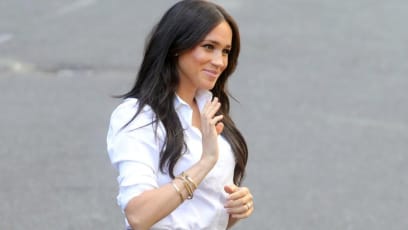
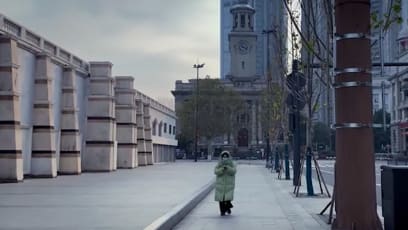





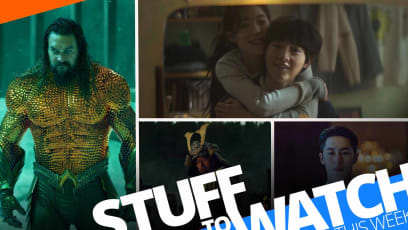
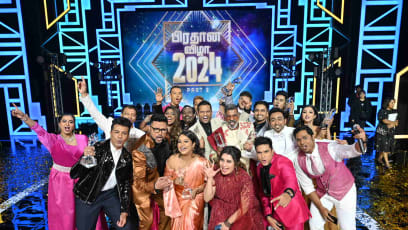
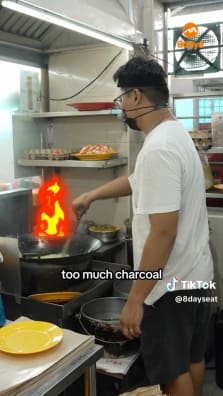
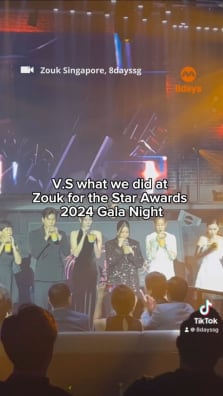
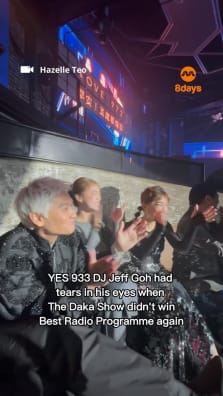
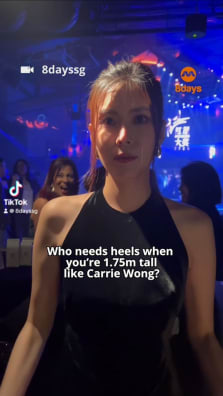

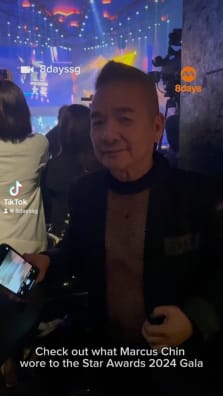
![We stan a kind-hearted boss with a good heart! 💕 Link in bio to read more
📍Rui Ji Chicken Rice
Blk 93 Toa Payoh Lor 4,
#01-48, S310093
📍148 Beach Road,
#B1-01 The Gateway,
S189720
📍Blk 305 Ubi Ave 1,
#01-179, S440305
[till 16 Apr 2024]
https://tinyurl.com/5dudypkh](https://onecms-res.cloudinary.com/image/upload/s---y3eV-Ts--/c_fit,h_396,w_223/f_auto,q_auto/v1/8days-migration/17999638880322602.jpg?itok=Tiqm3SVR)

